New Tariffs Send Stock Market Tumbling: The Fallout and Political Undertones
President Trump’s bold announcement of sweeping tariffs on imports from nearly all nations unleashed a wave of panic across the financial landscape this week, leading to a staggering decline in stock market values. The repercussions of this decision not only reshaped Wall Street but also stirred a deepening anxiety about the direction of the U.S. economy.
The Market Reaction: An Instant Negative Impact
Just days after the tariff news broke, the Dow Jones Industrial Average plummeted over 2,200 points in a single day, following a 1,600-point drop the day before. This dramatic downturn has left many investors questioning the sustainability of their portfolios and the overall health of the economy.
NPR’s senior contributor Ron Elving weighed in on the situation, expressing that while the President touted his economic strategy as a revival of American industry, everyday citizens who witnessed their savings evaporate may have a different perspective.
Trump’s Economic Vision vs. Reality
During this turbulent time, Trump likened the economy to a “sick patient” post-surgery, suggesting that the measures taken will yield long-term benefits. However, the reality felt by many Americans is starkly different. For families watching their investments shrink, concerns about job security and financial stability are far more immediate than political rhetoric promising a prosperous future.
Elving notes that many are skeptical of the optimism projected by Trump and his advisors. They cling to the belief that retaliatory actions from trade partners like China would be short-lived, leading to beneficial negotiations in the long run. The idea remains that American companies will pivot back, bringing jobs home and fostering domestic manufacturing.
Tariffs: A Double-Edged Sword
The proposed tariffs are not merely an economic maneuver; they also signal Trump’s intent to reshape America’s role in the global economy. This redefinition hinges on the belief that international agreements have weakened U.S. standing, and that confronting trade adversaries is necessary to reclaim economic strength.
However, the complexities of global trade interdependence reveal a problematic landscape. Small towns and rural communities hit hard by economic shifts since the 1990s might see temporary relief from tariffs, but the question remains as to whether these policies truly address the deeper issues affecting the American workforce.
Political Ripples: Response from Congress
The political ramifications have also started to surface, particularly among Republicans. Some senators have begun expressing their unease with Trump’s tariff strategy, advocating for legislative measures to curb these policies. Notably, efforts are underway to protect Canadian trade and reassert Congress’s authority in tariff settings—though these initiatives may falter in the House.
A Historic Protest: Senator Cory Booker’s Marathon Speech
Demonstrating a dramatic stand against the administration’s approach, Senator Cory Booker made headlines this week by delivering a continuous speech for over 25 hours on the Senate floor. In doing so, he not only broke a record set by a notoriously segregationist senator but also made a resounding statement about the importance of Constitutional integrity and checks on presidential power.
Cory Booker’s marathon effort highlights a growing concern among lawmakers about Trump’s disregard for Congressional authority. His message articulated a profound fear: that the current administration may bypass foundational democratic principles, challenging the very essence of American governance.
Conclusion: The Road Ahead
As the repercussions of new tariffs unfold, one thing is clear: the intersection of economic policy and political strife is sharper than ever. The current trade landscape poses significant uncertainties for American families and businesses, evoking a sense of urgency for policymakers to find viable solutions.
With public sentiment shifting and political tensions rising, the future of the U.S. economy hangs delicately in the balance. Only time will reveal whether President Trump’s bold strategy will bear fruit or if it will lead to prolonged economic hardship for the American people.
For ongoing updates and analyses on these developments, check back with NPR and other reliable news sources.
Note: The information presented here reflects events as of 2025. Please verify details for individual circumstances.






